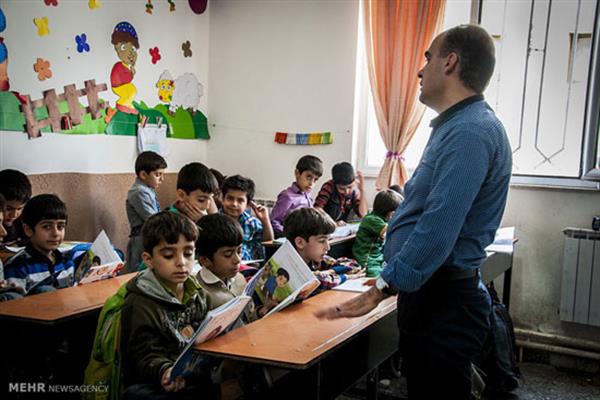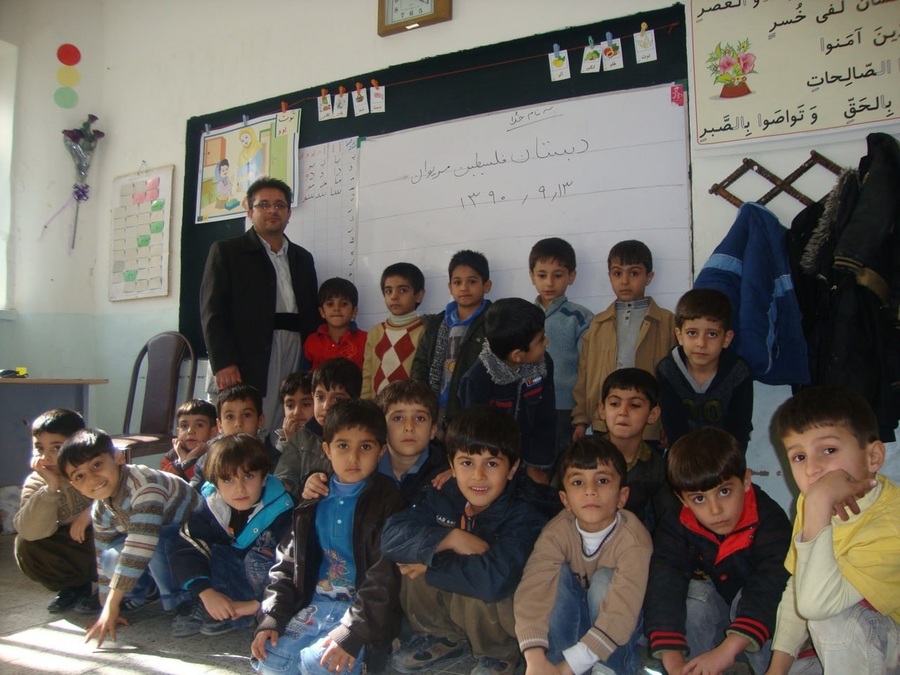Roj Qaderi
When we were kids as much as we loved Newroz and the first day of Spring, we also loved the Autumn and the first day that schools began. Our parents would buy us new clothes, uniforms, shoes, and stationary items for us to go back to school. However, all the children did not enjoy going back to school, only those who were smart and interested in learning new things.
I liked school, too. I was a good student. I would find new friends at school and we would play together, paint, and learn new things … but at that age, we never thought about the great oppression schools were imposing on us, our nation, and our land.
As I grew older these questions occupied my mind: " Why should I learn to read and write in Persian while I am Kurdish?! Why should not I have one Kurdish book to help me learn my native language?! Why do they call us Kurds, brave border protectors in these books?! Why do the Persian children learn in their mother tongue but I do not have such a right?! And tens of other questions …"
After these questions were swirling in my mind, I did not look forward schools to opening like I used to as a child because now I felt the great oppression imposed on me and all the Kurdish children and Kurdistan. Now I understood that imposed identification and I felt "who I was and my differences with the Others".
I was in 10th grade when I had a teacher who always brought a Kurdish book with him to the class. After the lessons were finished at the last minute of the class, he would show us the book and read some pages. This teacher's attempts had a huge impact on us. However, later I found out his aim was: "to encourage us to read Kurdish poems and stories; learn to read and write in our native language and gradually find our true identity among all those assimilations we were surrounded by."
The questions formed in my mind and this teacher's attempts changed my world. The pocket money I received from my parents for my school snacks was all saved. I gave them to my teacher several times to buy me Kurdish books. The money was not too much but my teacher never said it was not enough to buy books; he would buy me books with his own money. I was 15 years old when I was reading Qane', Hazhar, and Hemin's poems and memorizing them. I felt that great injustice more than ever.

At first, it was hard for me to read Kurdish, but I kept on trying until I was able to read fluently. I self-taught myself how to write in Kurdish, too. Qane', Hazhar, and Hemin became my first Kurdish language teachers. Later I inclined towards other Kurdish poems and they also became my masters. They were not only my Kurdish language teachers but were also my guides.
Now, 15 years have passed since those days. I have found "myself" and in all these years I have tried to help other Kurds to find their true identities so that we can make a day when we are so powerful that we can liberate ourselves, our land, and our language. I believe that until we do not find our true identities and until we do not liberate our enslaved minds, we can never liberate our land.
Although I am far away from the East part of Kurdistan, although I have finished school and university once again after hearing the schools are about to open in the Autumn, I remembered the great injustice that is imposed on my people and lands more than ever as well as my memories from those days which make me detest my oppressors more than ever.
Now, the East part of Kurdistan's situation is like the days I was a school student, even worse than those days in some fields. The assimilation of the Iranian regime against the Kurds and their children has made it impossible to teach Kurdish reading and writing at schools. All the books are in Persian and the identity of the Other is imposed on Kurdish children. Now, Kurdish children are brought up under the influence of the oppressive ideological system.
The families' financial conditions are getting worse every day. Most of the Kurdish families cannot even afford new clothes and school necessities for their children. This has made thousands of Kurdish students give up their education. Thousands of Kurdish children are working on the streets and in factories.
Despite all these, the families and teachers must not forget their duties. In spite of assimilation and imposing the oppressive nation's ideologies and political and language policies, we must continue our effort to educate Kurdish children. We must encourage them to read Kurdish books, learn how to read and write in Kurdish and teach them who they truly are and where is their true land. They must learn about their true identity. We must not let the ideology of the political and cultural policy of the oppressive nation penetrate our minds. we must prevent our nation from melting down inside the oppressive nation and let our language and culture fade away. We must teach our children not to keep quiet against the oppression and their rights being ignored. They must learn to insist on their rights and cry out: "We exist, you can never destroy us."









